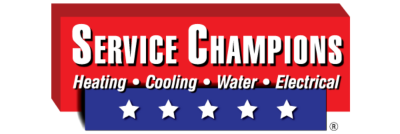Can You Write Off a New HVAC System on Your Taxes?

February 1, 2019
The 2019 tax season (2018 tax year) is upon us, which means people are trying to find ways to deduct expenses. Curious if you can write off a new HVAC system on your taxes? Are there any other energy-efficiency improvements that qualify for a tax credit?
In addition to tax credits for efficiency improvements, you may also qualify for rebates and other financial incentives. Check the ENERGY STAR Rebate Finder Opens a New Window. and Energy Upgrade California® and plug in your zip code to find available rebates and incentives in your area.
HVAC and Energy Efficiency Tax Deductions
2017 Nonbusiness Energy Property Tax Credit (Expired)
Let’s start with the bad news first. The nonbusiness energy property credit expired on December 31, 2017. You can’t claim the nonbusiness energy property tax credit for any property placed in service after 2017 (IRS).
What was the tax credit? 10% of cost up to $500 or a specific amount from $50-$300.
Residential energy property costs:
- Air Source Heat Pumps
- Central Air Conditioning
- Gas, Propane, or Oil Hot Water Boiler
- Gas, Propane, or Oil Furnaces and Fans
- Water Heaters (Non-Solar)
- Advanced Main Air Circulating Fan
- Biomass Stoves
Qualified energy efficiency improvements:
- Insulation
- Roofs (Metal and Asphalt)
- Windows, Doors, and Skylights
When did it expire? December 31, 2017
What are the details? Must be an existing home and your principal residence. New construction and rentals do not apply.
Can I still get the tax credit if I made a home improvement in 2017 but failed to apply for it?
According to ENERGY STAR, “if you did not claim a qualifying tax credit in a prior year, you may be able to file an amended tax return for the year’s return in which you made the improvement. However, you cannot claim it on your current tax return. For example, you cannot claim the credit for improvements made in 2009 on your 2010 taxes. For information on making an amendment, you can contact the Internal Revenue Service or work with a tax specialist.”
At the time of this writing, the nonbusiness energy property credit is expired, but Congress can always extend the credit. Visit IRS.gov/Extenders to find out if legislation extended the credit for your 2018 return.
Residential Energy Credit
This is the energy-efficiency credit you can write off for the 2018 tax year. According to the Internal Revenue Service (IRS), you may be eligible for the Residential Energy Credit if you made energy saving improvements to your home located in the United States in 2018.
The Bipartisan Budget Act of 2018 renewed a bunch of tax credits for residential energy efficiency that had expired at the end of 2016, including extending the tax credits for all residential renewable energy products through December 31, 2021, featuring “a gradual step down in the credit value” (ENERGY STAR).
For 2018, these tax credits are for certain:
- Qualified Geothermal Heat Pumps
- Qualified Small Wind Turbines (residential)
- Qualified Solar Energy Systems (including solar water heaters)
- Qualified Fuel Cells
You can use IRS form 5695 to claim your residential energy credit. You should also “use Form 5695 to take any residential energy efficient property credit carryforward from 2017 or to carry the unused portion of the credit to 2019” (IRS).
Form 5695 Instructions: https://www.irs.gov/pub/irs-pdf/i5695.pdfOpens a New Window.
Form 5695: https://www.irs.gov/pub/irs-pdf/f5695.pdf
Tax Credits and Financial Incentives for HVAC Improvements
So, what’s the answer? Can you write off a new HVAC system on your taxes? The answer is no (probably). The nonbusiness energy property tax credit expired that would have allowed you to write off a new HVAC system. If, however, you installed a qualifying geothermal heat pump, you may qualify for the residential energy credit (Form 5695).
But when installing or upgrading your heating, ventilation, and air conditioning system, or any related insulation and energy efficiency improvements, always be on the lookout for potential tax credits, rebates, and other financial incentives.
Some examples include:
- $225 – $1500 rebate on energy-efficient washers
- $25 – $125 rebate on smart thermostats
- $100 – $200 rebate on water heaters
Check the ENERGY STAR Rebate Finder Opens a New Window. and Energy Upgrade California® and plug in your zip code to find available rebates and incentives in your area.
*Disclaimer: The tax credit information contained within this website is provided for informational purposes only and is not intended to substitute for expert advice from a professional tax/financial planner or the Internal Revenue Service (IRS).
